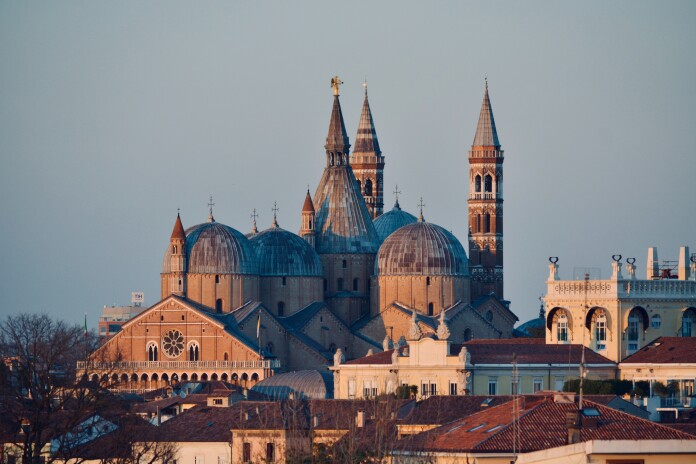
Have you ever wondered what it’s like to study in the university where Galileo Galilei taught astronomy? This article from Handriyanti, the alumna of University of Padua (UNIPD), will tell you what you need to know before studying in Padua (Italy), from getting the scholarship to daily life as a PhD student. You may discover that Padua offers many things beyond its picturesque view.
An Overview of Padua and University of Padua (UNIPD)
There is a middle size city nearby Venice, only 30 minutes by train. This city is an international city where people with various skin colors, salary ranges, and languages live. It is called Padua, or so called Padova in Italian.
I honestly would not know this city, if I did not get accepted in the University of Padua (UNIPD), as a PhD candidate in 2015. I ended up falling in love with this city at the end.
There are a lot of landmarks where you can just stroll around and spend your time without doing anything, such as Prato della Valle, Giardini dell’Arena, Piazza dei Signori, and Parco d’Europa.

There are two campuses of UNIPD, located in Padua and Legnaro.
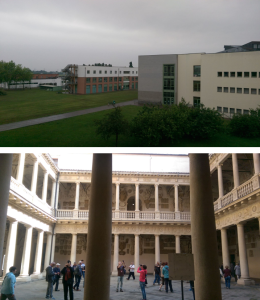
The one in Padua is for most departments and another one in Legnaro is for agriculture, forestry, animals, and foods department. Legnaro is located outside Padova city — a small yet nice city with limited public services (only one bank, one supermarket and one bar).
As Padua has more public services, I chose to live there. Hence, as I studied in Forestry Department, I needed to go to Legnaro on weekdays which is around 30 minutes by bus if there is no traffics.
What You Need to Know to Get the Scholarship at UNIPD
Back in 2014, the young me did not have any desires to continue pursuing a PhD degree and worked as a research assistant instead. However, due to some personal reasons causing me to want to be heard more, I decided to apply for some PhD positions and the UNIPD called me!
I did not have any scholarships and money, of course, to live abroad. My professor told me that the period to apply for a scholarship in UNIPD had been closed at the time I was announced that they welcomed me. I then applied and, fortunately, got a scholarship from Indonesia’s government, named LPDP.
If you want to get a scholarship in UNIPD as a PhD candidate, it is actually easy.
First of all, you must contact your target or a professor whom you want to do a research with. Once you receive a ‘green light’, you have to write a research proposal or the professor might already have prepared a proposal for you, if you are lucky.
The last step is presenting your proposal to the PhD Board consisting of PhD coordinators and some professors. This is the difficult part, in my opinion, because you have to be able to make them understand and interested in your research topic, so they want to give you their money. If they give you a nod, congrats! You now have a life as a PhD candidate!
If you are an undergraduate or master student who wants to get a scholarship from UNIPD, you have to remember that those scholarships are usually opened in the beginning of the year and closed in September since the beginning of the academic year is in Octobers. You can check them on the UNIPD website.
Praise the Lord, if you are not an Italian because UNIPD has a lot of scholarships for non-Italian citizen. There is a scholarship from Veneto region, a region where Padua is situated, but you have to bring proof that you hold an Italian residence permit or passport and you are from a low-income family. Commonly, all forms of these scholarships must be sent to UNIPD administrative desks via post office.
What the PhD Student’s Life Looks Like at UNIPD
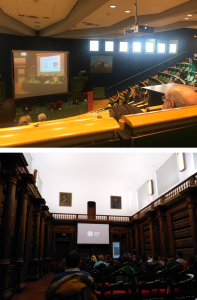
Usually, the first year is the time when you read a lot of articles to build your methodology and do the courses, which are standard courses, such as academic writing, coding, GIS, and statistics. It is fine if you cannot pass these courses in your first year because you can redo it again the next year until you will be in the third year.
During the first year, you must finish building your methodology and present it at the end of the year in front of the PhD Board. If you pass, you can continue to the second year. If not, they give you another six months to revise your methodology.
In the second year, you will start doing the research and present it again to the board at the end of the year.
In the last year, you must start to publish your research in the academic journal. If you have at least three published articles, you can make an article compilation thesis. Otherwise, you can also make an ordinary thesis, which is like a book as we call, if you don’t have enough published articles.
It has to be noted that PhD in UNIPD must be finished in three years, if you do not have any plans to be pregnant in the middle of your study. Thus, your research plan must be made following the three-year timeline.
Miscellaneous Things You Need to Know about Studying in Padua (Italy)
Speaking of the post office, Italian bureaucracy is super complicated, so you have to be patient and take note of the steps that you must do and have done, to keep track of it.
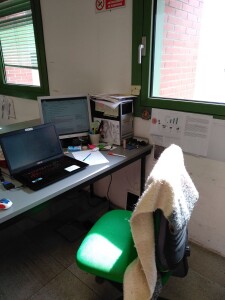
For example, it is a public secret that making an Italian residence permit needs a long process.
If you want to apply for an Italian residence permit as a UNIPD student for the first time, you just need to go to an international office, named SAOS office. They will give you complete guidance, check your documents, and explain to you about Italian insurance. Before you come, it is better to make an appointment as there are more international students in UNIPD, but officers working in the SAOS office are limited.
Then, you have to go to the post office to submit your forms and then come to the immigration office based on the appointment date given by the post office officer.
The process for issuing the first (new) residence permit usually needs a month, but it takes 3-6 months to renew it because you have to start the renewal process 1-2 months before your current residence permit expires.
In terms of daily communication, most young people (12-35 years old) in Padua can speak English, so do not worry too much about it. The thing that you must worry about with this language barrier is the boomers who work in the offices or commercial places, such as the post office, immigration office, banks and supermarkets.
I was quite lucky for this because I can speak French and it is a little similar to Italian. However, Italian people use a lot of hand gestures, so you can immediately catch what they talk about. Moreover, if you want to have a two-way conversation with people who cannot speak English, you can always use Google Translate.
Luckily, there are plenty of paths to learn Italian in Padua. Beside learning it in the language center (CLA), there is also a group of people which gathers in a bar usually on Wednesdays to drink together and do tandem language learning. You will be coupled with an Italian. She or he will teach you Italian and you will teach her or him English or your mother language.
Beside its international atmosphere, living in Padua is cheap. You only need to pay for around 180-250 euros per month if you want to live in a university dorm having a shared bathroom and kitchen. However, it is quite difficult to get this service because of the number of students in UNIPD.
Another option is searching for a shared apartment by yourself using a Facebook page named Cerco, offro casa o stanze in affitto a Padova. However, there are some obligations that must be followed commonly, such as you must visit the house to make sure that this house is your preference and to introduce yourself to the current housemates and pay the guarantee fee (for about 2-3 of your monthly rent) before you enter the house. The latter is the source of money to the scammers, so you have to be careful when you want to use the service of this Facebook group. Honestly, I was so lucky to get the house in Padua because I always got a nice house and housemates twice!

If you are a Muslim, there is definitely no Islamophobia in Padua because of its diversity. You can also find halal meats in the supermarkets owned by South Asia and Middle East people. There are also halal meats section in the big supermarket. If you order something in restaurant, you can say to the waitress that you are a Muslim and they will immediately explain which foods and drinks containing pork and alcohol.
Although I have come back to Indonesia and worked in the biggest city of this tropical country, Jakarta, for 5 months at the time this article was written, my heart is stuck in Padua. Someday, I will come back, either as a tourist or whoever I will be.
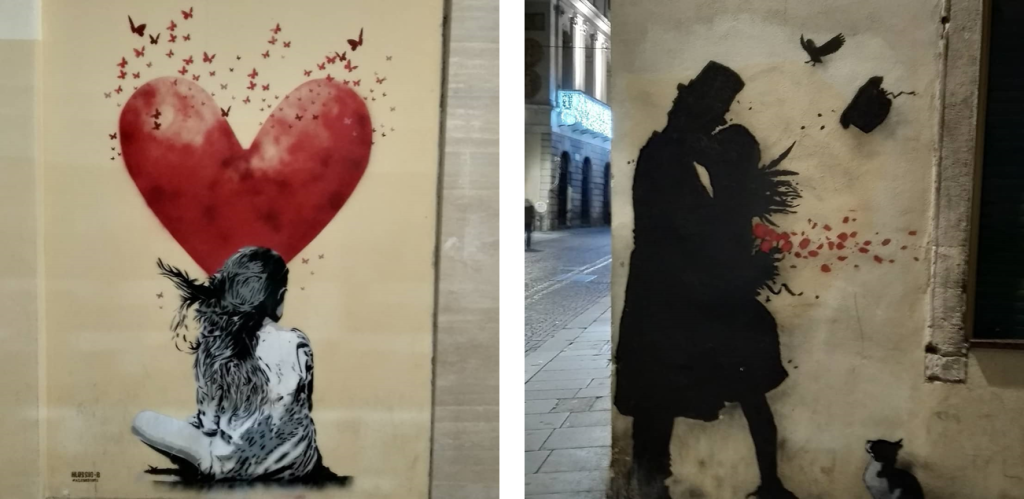
All photos are provided by the author, except the first photo.







Thank you, This is an excellent article. I am a professor from the USA and planning a study abroad with undergraduates and I found this very interesting about every day life in Padua.